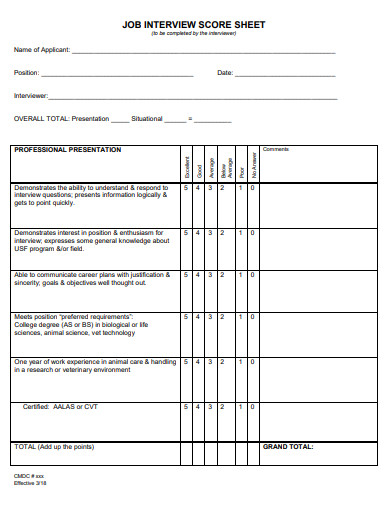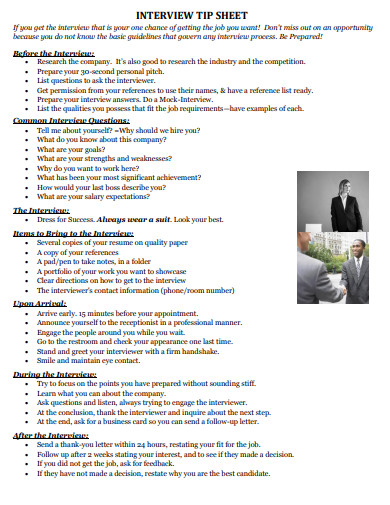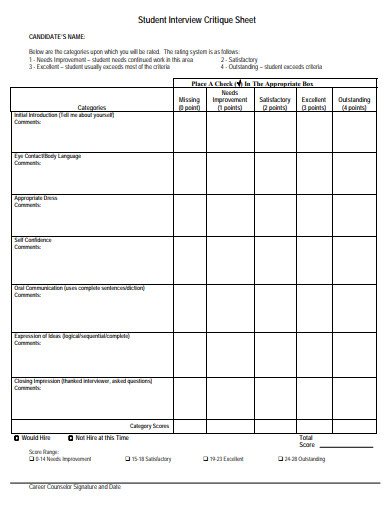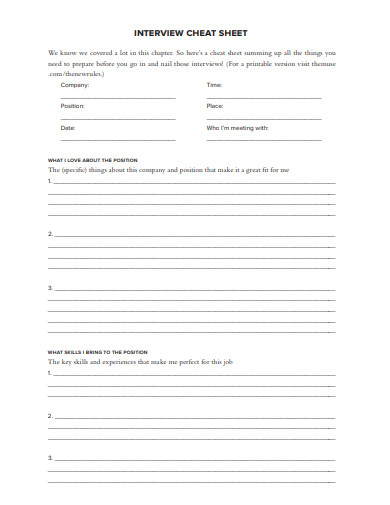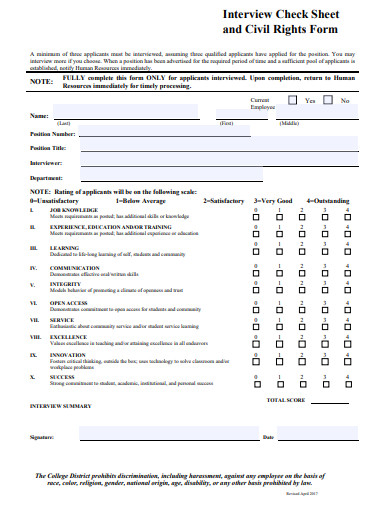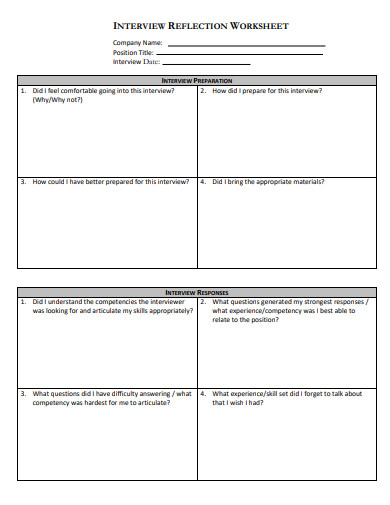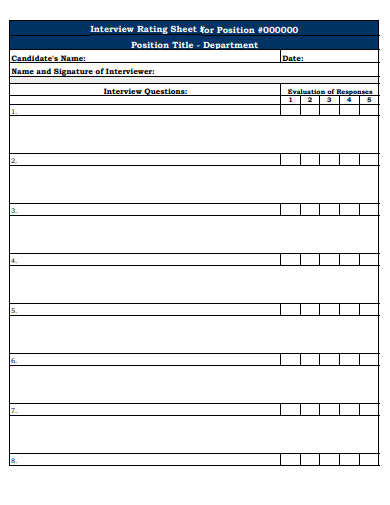10+ Interview Sheet Examples to Download
Interviews are conducted on a day-by-day business by each company and organization. A consultation can offer assistance to inquire almost an applicant’s data concerning their necessities for a particular position. Businesses may indeed choose to form, utilize and meet input shapes in which the candidate allows input on the interviewer’s execution. By utilizing something such as interview forms, bosses can evaluate the comes about of an applicant’s meet. These individuals will judge and weigh whether a candidate may be a resource or risk towards the trade.
10+ Interview Sheet Examples
1. Interview Sheet Template
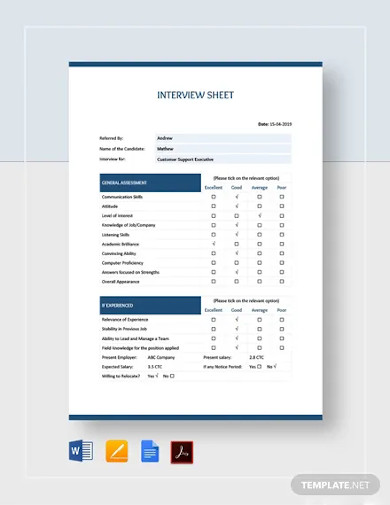
2. Interview Score Sheet Template
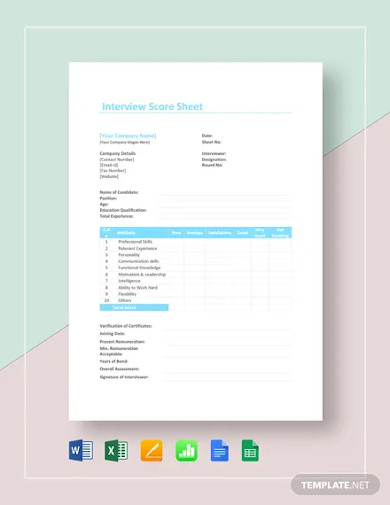
3. Interview Worksheet Template
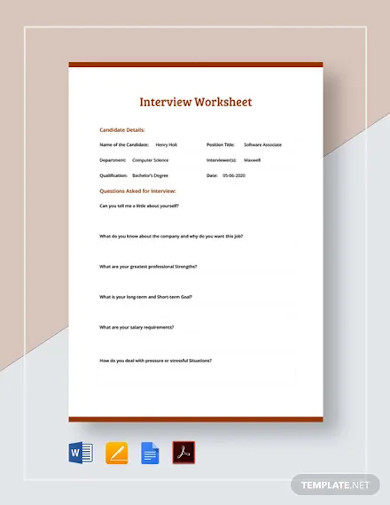
4. Free Job Interview Scoring Sheet Template
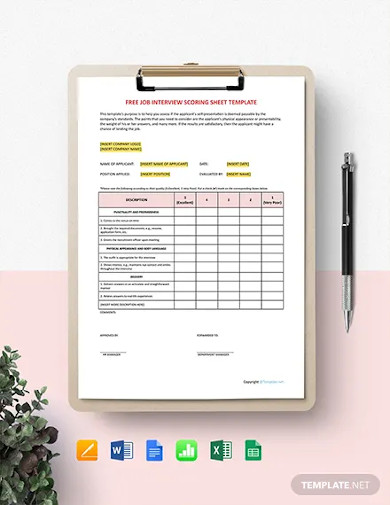
5. Job Interview Score Sheet
6. Interview Tip Sheet
7. Student Interview Critique Sheet
8. Interview Cheat Sheet
9. Interview Check Sheet
10. Interview Reflection Worksheet
11. Interview Rating Sheet
What Is a Interview Sheet Template?
Self-evident by its name, an interview form is used by employers to gather information from the outcome of interviews. Such conditions help analyze data after an interview utilizing an Interview Assessment Form. Any details provided by the applicant in the course of an interview should be accurately indicated in the forms Particularly if the requirements that needs to be complied by an aspiring employee for a specific position is in line with the information provided. Interview forms are also helpful in holistic feedback to give an insight to both the employer and the applicant on how the interview went. Feedback sourced from the interview forms allows an employer to properly evaluate the applicant’s capability for the position and the scope of points that need improvement for the interviewee.
How To Plan a Interview Sheet?
Are you fortunate to be a part of a developing organization that’s hiring? In case it has been for a moment since you met candidates for position openings, this article will give you a few tips for you to consolidate into your meeting preparation.
Unplanned interviews are, for the most part, a squander of time. They energize judgments based on whether you had a pleasant chat instead of whether the candidate can do the work. Arranging for the meet ought to incorporate these key steps:
1. Know your qualifications.
An interview requires qualifications because it enables the applicant to understand what the position entails. The level and type of expertise needed and the skills and time the work demands are essential aspects the applicant needs to understand. These qualifications are significant in discerning what is expected of you.
2. Review the candidate’s resume.
Checking the applicant’s resume is one of the most important things to do while conducting the interview. With this, you can check his/her educational background and past experiences to decide if the applicant is suitable for the job.
3. Plan a set of questions that you want to ask for all the candidates.
A series of standard questions will assist you in deciding whether candidates can meet your prerequisites. The request should concern the candidate’s abilities, capacities, and past work exhibitions related to the position you’re filling.
4. Plan a set of questions for each candidates.
In addition to the questions that you ask all candidates, plan great questions for each person candidate. These questions, as a rule, emerge from a survey of the continue and application or a phone call. Utilize the questions to assist in clarifying specific perspectives of each candidate’s foundation.
5. Craft the interview.
As a questioner, you should listen every time the applicant answers the questions because it will inspire a candidate to be more confident until the end of the interview.
FAQs
What is an interview format?
An interview format refers to an organized way of organizing a meet so bosses can successfully survey candidates’ abilities, encounters, and capabilities for work. The work industry, particular part prerequisites, and a company’s approaches can impact an employer’s choice within the interview format.
What is the order of an interview?
Fortunately, most interviews take after a comparative design comprising three stages: the presentation, the data trade, and the wrap-up.
What are the different types of interviews?
Managers conduct distinctive work interviews, such as behavioral interviews, case interviews, gather interviews, phone and video interviews, online interviews, moment interviews, and indeed interviews held amid a meal.
Before the interview, the interviewer should be ready, which means he knows what he aims to ask while the discussion is ongoing. If you need assistance in making such sheets, download our accessible balance sheet templates and other sorts of interview layouts that might require within the future.



